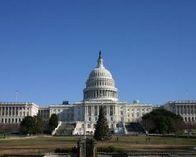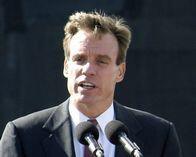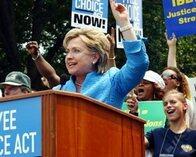Obama and the Skeptic-Free Campaign By Froma Harrop
Big-time political writers are busy people. With all the blogging, the parties and appearances on TV, skeptical examination of widely accepted beliefs seems a waste of time.

Big-time political writers are busy people. With all the blogging, the parties and appearances on TV, skeptical examination of widely accepted beliefs seems a waste of time.

President Bush next week will send Congress a trade agreement forcing Democrats there to make an unpleasant choice. Will they follow the bidding of organized labor and reject a pact negotiated more than a year and a half ago with the country's strongest ally and best customer in South America?

The most puzzling aspect of John McCain's political persona is his habitual attraction to George W. Bush's bad ideas. Their shared enthusiasm for invading Iraq and then escalating the war is why "McSame" will soon become the new shorthand for the Arizona Republican, replacing "maverick" -- but that isn't the only reason.

Fifty-four percent (54%) of Likely Voters nationwide believe Barack Obama is politically liberal. Fifty-two percent (52%) say the same about Hillary Clinton.

During March, the Democrats held on to their partisan gains earned during the first two months on 2008.

Even as the Obama and Clinton campaigns fight frantically to establish the appropriate yard-stick by which to judge the will of the American people, one fact has been largely ignored: Obama's significant delegate lead is largely a product of the Democrats' unique delegate allocation system.

It is becoming increasingly clear that the outcome of the Democratic presidential nomination will hinge on the votes of the party's so-called superdelegates, elected officials and party leaders who are automatically entitled to attend the Democratic nominating convention regardless of the results of the primaries and caucuses.

The latest Rasmussen Reports telephone survey of New Jersey voters found Democrat Frank Lautenberg holding double-digit leads over two Republican opponents in the race for the United States Senate. Lautenberg leads Joe Pennacchio 54% to 36% and Murray Sabrin 54% to 35%.

The Discover U.S. Spending Monitor reached a new low in March as consumers grew even more concerned about the economy and their personal finances in the face of rising monthly expenses.

The latest Rasmussen Reports telephone survey of Washington voters found a virtual tie in the race for the state’s next governor. Democratic Incumbent Christine Gregoire holds a statistically insignificant lead over Republican Dino Rossi, 47% to 46%.

At a time when gas prices are reaching record high averages nationwide, many are feeling the financial squeeze.

Bill Clinton has campaigned aggressively on behalf of his wife during Election 2008. Forty-three percent (43%) of Americans believe that his behavior during the campaign will hurt his reputation in history.

The US workforce is getting more pessimistic about the job market, according to the latest Rasmussen Employment Index (formerly the Hudson Index).

Democrat Mark Warner still has a comfortable lead over Republican Jim Gilmore in the race for Virginia’s seat in the U.S. Senate. The latest Rasmussen Reports telephone survey of Virginia voters found Warner up 55% to 39%

he Democratic contest lasts until the convention in late August, so what? That leaves two months for Democrats to "coalesce" around their candidate and fight the Republican. And even that shorter time frame will seem a month too long for voters.

Senator Hillary Clinton’s lead in the Pennsylvania Primary is shrinking. The latest Rasmussen Reports telephone survey in Pennsylvania shows Clinton leading Barack Obama by just five percentage points, 47% to 42%.

While Democrats are still fighting about whether and how Michigan’s delegates will be seated at their party’s national convention, early polling suggests that John McCain could be very competitive in the state when voters go to the polls in November.

John McCain holds statistically insignificant leads over both Hillary Clinton and Barack Obama in New Jersey. It’s McCain 45%, Clinton 42% and McCain 46%, Obama 45%.

After an upward tick in February, small business owners' economic confidence took a sharp drop in March, casting the Discover Small Business Watch to its lowest point since its inception in August 2006.

The latest Rasmussen Reports telephone survey of likely Washington state voters finds Barack Obama leading John McCain 48% to 43%.